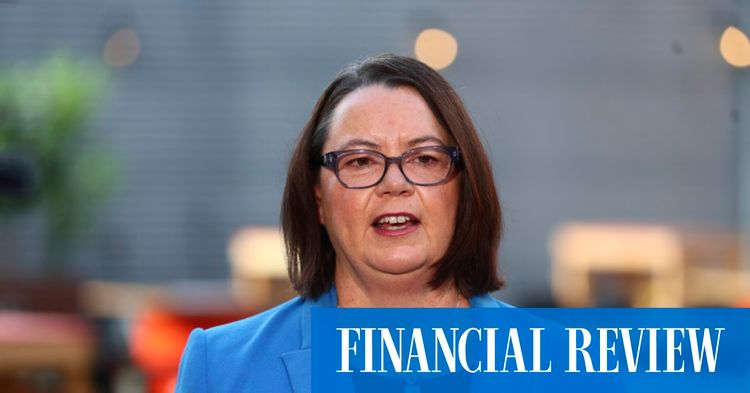Gas storage sites tie Labor to tech opposed by teals and activists

The matter has turned into a fierce conflict within the industry and the Labor party. It escalated a year ago when Ms King broke a ten-year halt in the government's leasing of offshore land with an initial portion. This action led to an outcry on Twitter and received disapproval from independent MPs who are against the gas industry.
Ms. King's declaration arrives a mere fortnight following the Labor conference's decision to lessen the party's backing for carbon capture in terms of gas production and manufacturing. The conference stated that this technology ought to solely be employed in challenging-to-address areas such as cement manufacturing. Contrastingly, four years back, Labor's platform asserted that storage and capture would undeniably contain significance. At present, it merely acknowledges that there is a possibility for its usage.
The APPEA, a group that represents the gas industry, stated that the decision made by Ms King to release more land for use would speed up the progress towards implementing carbon capture, utilization, and storage technology (CCUS) in Australia.
Australian Petroleum Production and Exploration Association chief Samantha McCulloch emphasizes that CCUS should be ingrained in our country's identity, just as gas production has been for many years. This process essentially involves the reversal of gas extraction, as it involves capturing emissions and storing them in deep geological formations, often in former gas fields.
"Considering the recent advancements in cleaner energy initiatives by countries such as the United States and the United Kingdom, Australia must take proactive measures to guarantee its involvement in acquiring emission reductions and capitalizing on the forthcoming economic advantages associated with these emerging sectors."
Louise Morris, an advocate for the preservation of marine life at the Australian Marine Conservation Society, expressed concerns regarding the impact of Carbon Capture and Storage (CCS). She claimed that the implementation of CCS would prolong the existence of the fossil fuel industry, as well as the deterioration of its oil and gas reserves.
"She expressed concern that these land releases for CCS could have a detrimental impact on our oceans and the creatures that inhabit them. It would also add to the already substantial carbon emissions in Australia and hinder our progress in meeting the climate goals set forth in the Paris Agreement."
According to her, investigating CCS poses a notable danger to marine creatures, such as blue and southern right whales.
"CCS is relentless," declared Matthias Raab, the head of a significant carbon capture evaluation center in southern Victoria and the CEO of CO2CRC.
The release of land allows the oil and gas industry to reduce the gas emissions from their storage areas. This enables them to keep producing essential commodities like gas, while ensuring the emissions are as low as possible.
"They are establishing the necessary framework to sustain our economy, by supplying power to Australia and our neighboring countries in South-east Asia, Japan, and Korea."
According to him, the modifications made to the safeguard mechanism this year necessitate the storage of naturally occurring carbon dioxide within newly developed gas fields in order to achieve zero emissions.
Additionally, Ms King revealed a financial allocation of $12 million to facilitate the acceleration of permitting processes for CCS projects. Dr Raab highlighted that currently, these processes typically stretch out anywhere from eight to 10 years.
The specified timeframe poses a challenge for companies that fall under the jurisdiction of this mechanism to effectively employ CCS and CCUS within the given timeframe in order to comply with their regulatory restrictions. As per the recent legislation, over 200 major emitters from industrial, manufacturing, and resources sectors within the country must reduce greenhouse emissions by a maximum of 5 percent annually.
The modifications are one of the main catalysts for the Labor Party's commitment to decrease the country's total emissions by 43 percent in the next ten years. This commitment is fundamental to Australia's united dedication to the international Paris Agreement, aiming to prevent global temperatures from increasing beyond two degrees, with a preferable limit of 1.5 degrees.
According to John Beever, the chairman of CO2 Value Australia, a coalition representing scientists, innovators, and consumers of carbon utilization technology, all effective and environmentally friendly technologies will play a crucial role in achieving the objectives of the Paris Agreement. Therefore, it is essential to evaluate these technologies solely based on their effectiveness and value.















































